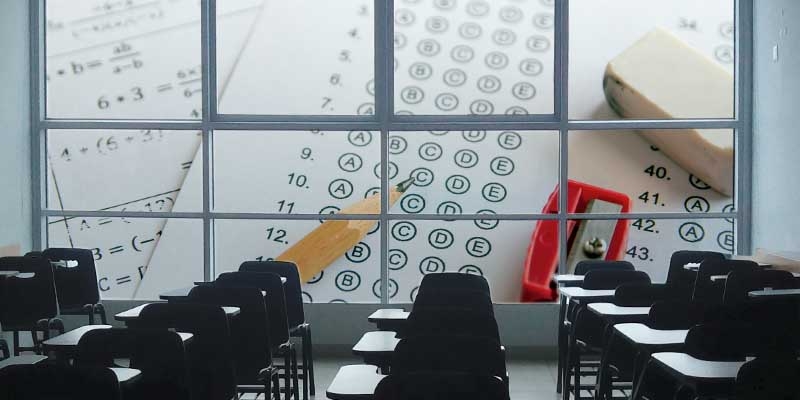Don’t scrap vital student assessments based on union complaints

Recently, Teri Mooring, president of the British Columbia Teachers' Federation, once again called on the provincial government to scrap the Foundation Skills Assessment, which every year tests Grade 4 and 7 students on reading, writing and mathematics.
Indeed, the unusual suspects are using the same tired rhetoric (and now, the pandemic) to argue for an end to these student assessments.
Of course, COVID has changed a lot, but the union’s opposition to student assessments has remained the same. Instead of proposing to improve standardized assessments—and there’s room for improvement—opponents claim these assessments are manipulative, unfair and stressful for teachers and students.
But in reality, standardized student assessments are critical for student success. And they empower parents who want to know how their children—and their children’s schools including the teachers—are doing. The standardized nature of these assessments (i.e. all students take the same test) ensures a level playing field where we can draw meaningful insights. For both students and parents, assessments matter for several key reasons.
The first is transparency. Teacher unions are not the primary stakeholder in education. Parents, and indeed all British Columbians, contribute to the education system and should know how B.C. schools, teachers and students are performing. The success of our students is quite literally the foundation for the success of the province.
The second is choice. Parents require reliable information based on data to make informed decisions about their child’s education. Armed with assessment results, parents can make choices about their child’s education and help push schools to continuously improve. Teachers and principals, too, can use this information to help perform their life-changing roles of improving struggling schools.
The third is just that—improvement. Student assessments measure how students (and by extension their teachers and schools) are doing academically. We can’t improve if we don’t know how we’re doing.
The teacher unions often complain that policy analysts (including analysts at the Fraser Institute) use assessment results to rank schools. But these rankings also use a variety of other measures including average exam marks, percentage of exams failed, graduation rates and so on. They demonstrate which schools are improving over time, and highlight student characteristics such as special needs, French Immersion and the percentage of kids in English-as-a-second-language programs.
Fundamentally, like any form of student assessment, these school rankings underscore the fact that improvement is possible. That any child in any circumstance can achieve remarkable things. And that any school, with determination from dedicated staff and teachers, can improve.
For example, according to the latest Fraser Institute Report Card on B.C.’s Secondary Schools, Port McNeill’s North Island Secondary (with 25 per cent of students having special needs) is the fourth-fastest improving school in the province. Everyone in B.C., especially teachers and principals, should celebrate this achievement and seek to replicate this success.
Again, rankings aid improvement. Highlighting schools that are effective empowers others to learn from them, try new things and make changes—particularly for comparable schools with similar student characteristics. When parents know how other schools are performing, they can visit schools, interview teachers and school administrators, talk to other parents and access information from the ministry of education, school boards and individual schools. Transparency is the key to improvement. When parents are empowered to know more and ask informed questions, the entire school community benefits.
Students in B.C. have faced many challenges during the pandemic. Let’s not allow B.C. kids to fall further behind due to the narrow interests of a labour union.

